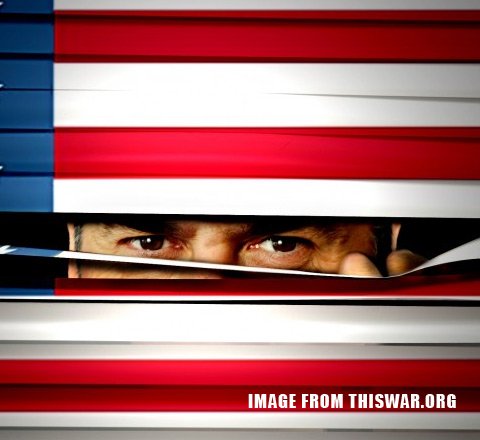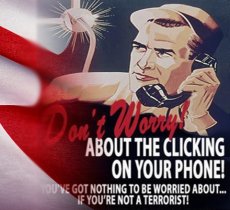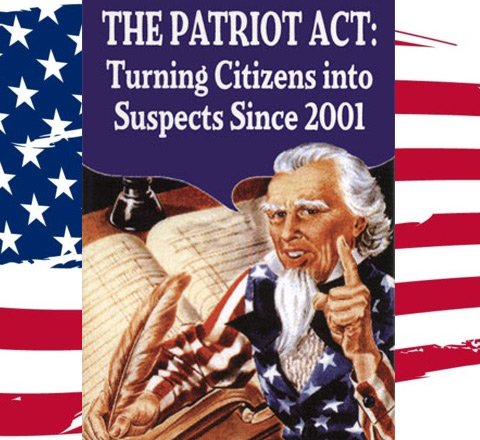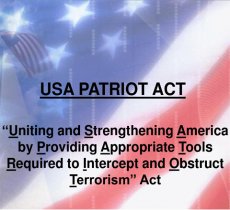Big Brother is Watching.
Wire-taps, SMS text message interception through radio waves, fusion centers, internet surveillance, facial recognition technologies. It all sounds like something right out of a sci-fi.
H
owever, this tech is all in frequent use, and keeps growing and expanding with new breakthroughs occurring almost daily. We already know that the governments of the world always get first dibs when it comes to new-fangled techs; we also know that in the past they haven't always used them with honest intentions. So where does that leave us today? Are we being watched as closely as the conspiracy theorists say? Are our governments actually trying to protect us from a looming threat, or are our governments themselves breaching our privacy in the name of some hidden agenda? I'm here to give you an idea of what our local governments are (admittedly) using technologies for, as well as the ability to decide for yourself who you'd like to rest your faith in.
I bet you're already thinking "well, there ARE laws to protect my privacy." Do yourself the favour of looking into these laws, and see all the loopholes that take away your false-sense of "security". If that doesn't scare the shit out of you, I don't know what will.
I was going to start with wire taps, seeing as they are one of the most dated forms of meddling in one's personal life. However, I'm finding more and more difficulty finding examples of wire-taps in use. The US Courts website no longer provides reports on wire-taps, from now or past records. Unfortunately, I won't be able to use these as reference, and looking elsewhere for credible information has been difficult, so I instead decided to go into further detail about the laws and procedures on how the US government taps a line. You can find all this information
here, as I will only be covering small parts of it. As I read it, it seemed fairly logical, wire taps are used for aiding criminal investigations, and it's against the law to use wire taps unless you go through special procedures and get consent from the courts.
But reading further I found that it all becomes broader and vaguer regarding technologies to wire-tapping.
Although this information is dated, it made me question what counts as "criminal activity" nowadays, how the laws may have changed, and how much more technology can the government use as a "tapping" medium.
In today's day and age, the greatest criminals known are terrorists. But what exactly defines a terrorist? If you went with the automatic response that most people use as a bias, you'd have said "middle eastern looking." This is probably the most unintelligent conclusion people come too willingly since 9/11. START (A science and technology sector of the Department of Homeland Security) has a broader spectrum of what a terrorist is, and not just any terrorist, a domestic terrorist. According to a report released in 2012, things that could define a terrorist are as follows:
- Extreme right-wing groups who feel their personal or national "way of life" is under attack, imminent threat, or already lost. They may also be anti-global, suspicious of centralized federal authority, reverent of individual liberty, and who believe in conspiracy theories that threaten sovereignty.
- Extreme left-wing groups who want to bring change through violent revolution rather than through political means.
- Religious groups who want to smite in God's name, or want to impose religious laws/tenets on laws and society.
- Ethno-Nationalist/Separatists who are committed to regaining political independence through any means.
- Single issue (anti-abortion, anti-Castro, anti-catholic, anti-nuclear).
To read the rest of the report,
click here.
So now ask yourself, how many of those categories do you find yourself in? Things just got a bit more uncomfortable for you, didn't they?
So now that we know the terms of a criminal/domestic terrorist are incredibly vast, we can move on to the laws that protect us, or not. So firstly, I'd just like to point out that the term "privacy" has a few different concepts and meanings when speaking in a legal sense, Wikipedia.com describes it as the broad term "the right to be let alone," which I think at least is an agreeable definition of the term. So we will go with that. If I were to speak about every single privacy law in the US and Canada, I'd have to write a whole book, and it would be boring, and nobody would read it anyway. With that, I shall divulge into some of the more recent and relevant laws that have been passed such as the
PATRIOT Act, the
Personal Information Protection and
Electronic Documents (PIPEDA) Act, and the
Canadian Privacy Act. You should know by now, that the PATRIOT Act was enacted in 2001 briefly after the 9/11 attacks as a counter-terrorism strategy. What you probably didn't know is that the whole thing was designed to breach privacy.
Exactly whose privacy becomes very debatable when you look into all?
After digging through the very well-lawyered document, I've found a few shocking things. According to the PATRIOT Act, the government now has the right to search and seize any American citizen, has the right to monitor political and religious institutions without suspicion of any crimes, and strongly discourages freedom of speech. All in the name of fighting terror.
Looking into Canada's Privacy Act, I've found some equally questionable things. It says that personal information may be disclosed by the Canadian government for any reason, as long as they think they need it.
In the PIPEDA Act it says that
"In certain circumstances personal information can be collected, used, or disclosed without the knowledge and consent of the individual" for legal, medical, and security reasons.
I'd also like to quickly mention the Canadian C-30 bill, which would have completely stripped Canadians of online privacy, allowing the government to see literally everything we do online, and would have allowed them to change/remove it. Thankfully, on February 11th of this year, the government folded under public pressure and killed the bill. However, there is still the looming threat of bill C-12, which will basically do the same thing as the C-30 bill.
Both governments are pushing amendments which will give them permission to do whatever they'd like when it comes to keeping an eye on the masses. Our laws protect us moderately for now, and who knows how long that will last.
Countries such as China wire tap and spy on citizens all the time, and they are giving all that ability to other countries, who do the same thing or worse with the tech. The phone providers in the west are in the pockets of the government, and our laws are no longer keeping us as safe as we thought they were.
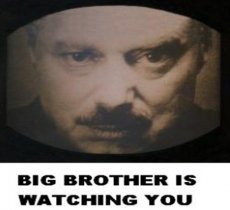
It's been admitted by the US government that they use our cell phones to spy on its citizens. In the U.K. it's been reported that the government checks in to the computer activity of the jobless masses. Canada has microphones and cameras in airports all over the country as well as CSIS (Canadian Security Intelligence Service) making tabs. These are just small stepping stones to a much larger platform of citizen surveillance. We can still cling to what we have for privacy, but this won't last long. Governments have the tech set up for surveillance already, almost every man woman and child carries a cell phone. And some of these reportedly can be turned on and used to listen in or even watch the unbeknownst owner. The only thing that stands in the government's way is we the people, who pay attention and refuse to allow this sort of thing to go on any longer. But be warned, they will get sneakier in their legal ways, pushing laws as they see as necessary. We think we live in democratic nations, but does this look like democracy?
What are your thoughts on the topic? For more information about it all, feel free to read the
Patriot Act,
Canada Privacy Act or
PIPEDA.
